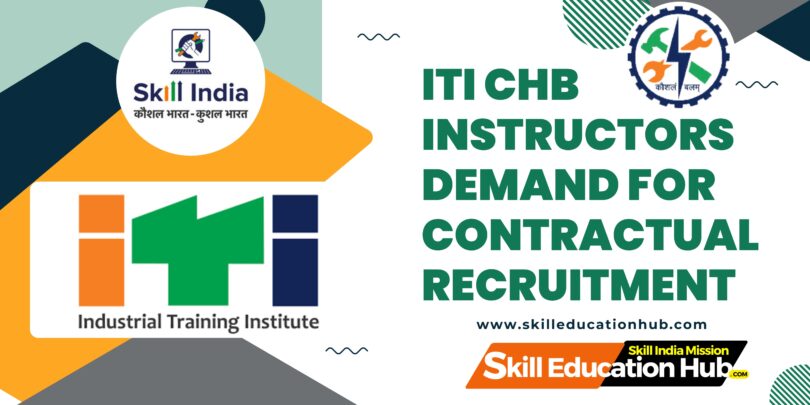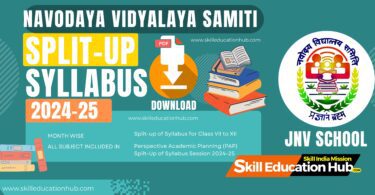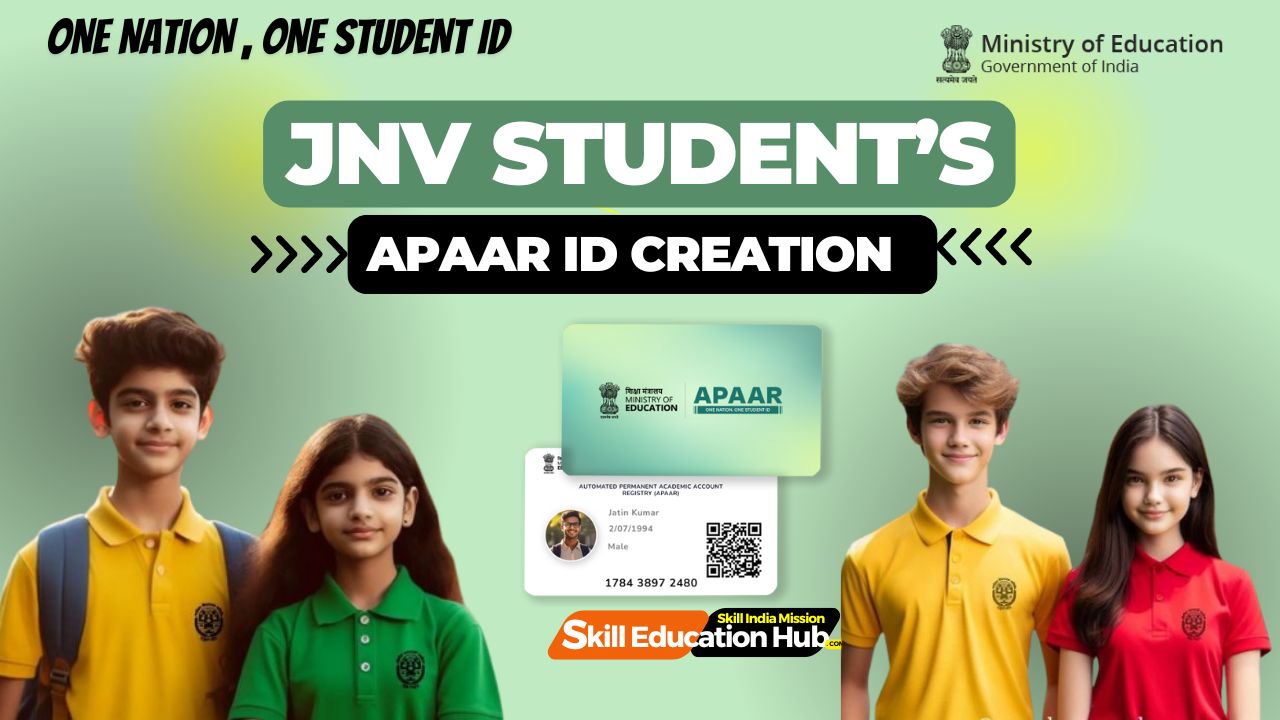The demand for contractual recruitment of clock hour basis (CHB) instructors in Maharashtra’s ITIs reflects the aspirations of experienced instructors for better job security and benefits. However, the process of implementing such demands often involves various stakeholders and considerations, including the role of the Directorate of Vocational Education and Training (DVET) and Maharashtra government policies
Future of Clock Hour Basis Instructors in Maharashtra’s ITIs will depend on a combination of factors, including government policies, budgetary allocations, technological advancements, and the dynamics of the education and labor markets. Collaboration between stakeholders and proactive measures to address instructors’ demands could contribute to a more favorable working environment for ITI Instructors in the state.
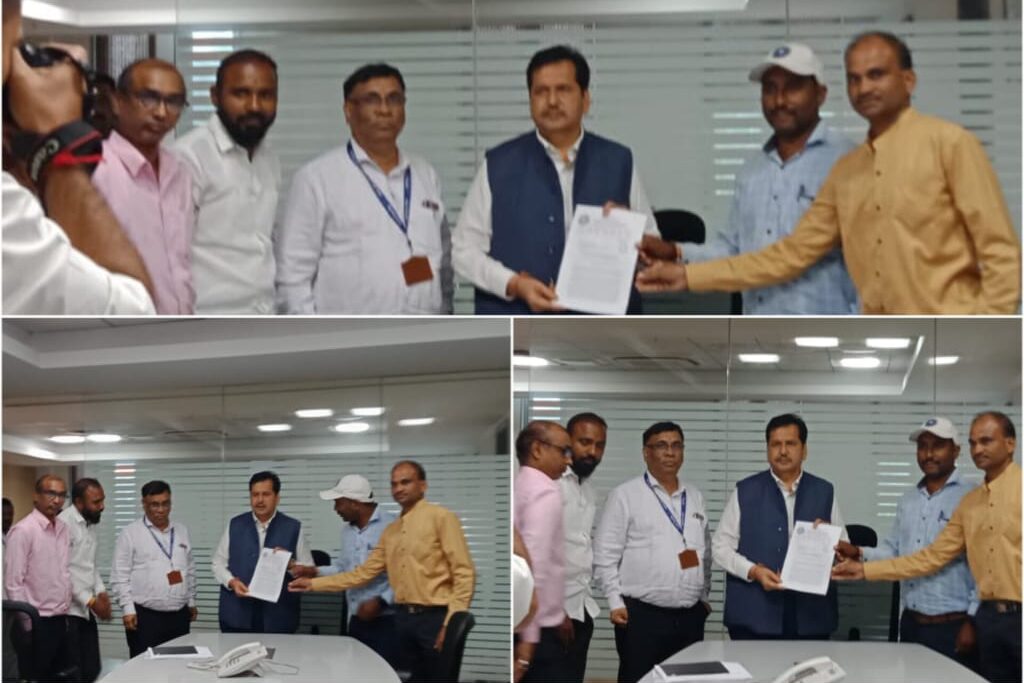
In Maharashtra, the backbone of Vocational Education lies within its 417 Industrial Training Institutes (ITIs), which collectively employ 3000 dedicated clock hour basis (CHB) instructors. However, amidst their vital role in shaping the future workforce, these instructors find themselves at a crossroads, advocating for contractual recruitment to secure their job tenure and attain better benefits.
The present scenario paints a picture of both resilience and uncertainty within Maharashtra’s ITIs. With instructors serving as the cornerstone of vocational training, their importance cannot be overstated. Yet, many of these skilled professionals operate under the precarious framework of clock hour basis (CHB) employment, lacking the stability and benefits afforded by contractual arrangements.
ITI CHB instructors, with several years of experience on a clock hour basis, are seeking contractual recruitment in government ITIs. This demand is understandable as experienced instructors often seek stability and better employment benefits. Contractual recruitment may offer them more job security and improved working conditions.
To address the demand for contractual recruitment of CHB instructors in Maharashtra’s ITIs, stakeholders, including government authorities, educational institutions, and instructors’ unions, must collaborate to develop and implement policies that prioritize instructor welfare and job security. By recognizing the valuable contributions of CHB instructors and addressing their concerns, Maharashtra’s ITIs can build a stronger and more sustainable vocational education system for the future.
The present scenario paints a picture of both resilience and uncertainty within Maharashtra’s ITIs. With instructors serving as the cornerstone of vocational training, their importance cannot be overstated. Yet, many of these skilled professionals operate under the precarious framework of clock hour basis (CHB) employment, lacking the stability and benefits afforded by contractual arrangements.
As demands for skilled labor continue to grow, experienced instructors seek reassurance in the form of contractual recruitment. The call for such measures stems from the innate desire for job security and access to enhanced benefits. For years, these instructors have contributed their expertise to the development of Maharashtra’s workforce, yet find themselves navigating a landscape fraught with instability.
The role of the Skill Development Minister in addressing the demand for contractual recruitment of CHB (Clock Hour Basis) instructors in Maharashtra’s ITIs is pivotal.
Skill Development Minister plays a crucial role in championing the cause of CHB instructors and advocating for contractual recruitment in Maharashtra’s ITIs. By leveraging their influence, resources, and policymaking authority, the Minister can contribute to creating a more stable and conducive environment for vocational education and training in the state.
DVET plays a multifaceted role in addressing the demand for contractual recruitment of CHB instructors in Maharashtra’s ITIs. By engaging with stakeholders, formulating relevant policies, overseeing their implementation, and advocating for instructor interests, DVET contributes to creating a conducive environment for vocational education and training in the state. However, the process may take time due to bureaucratic procedures, budget constraints, and the need for consensus-building among stakeholders.
- Understanding the Demand: DVET plays a crucial role in understanding the demands and grievances of ITI instructors regarding their employment conditions. They interact with instructors, instructors’ unions, and other relevant stakeholders to assess the situation comprehensively.
- Policy Formulation: DVET, as the governing body responsible for vocational education and training in Maharashtra, is involved in formulating policies related to instructor recruitment and employment. They consider various factors, including demand-supply dynamics, budgetary constraints, and the broader objectives of vocational education.
- Policy Implementation: Once policies regarding contractual recruitment are formulated, DVET oversees their implementation across Maharashtra’s ITIs. This involves coordinating with regional authorities, ITI management, and relevant departments to ensure compliance with the established guidelines.
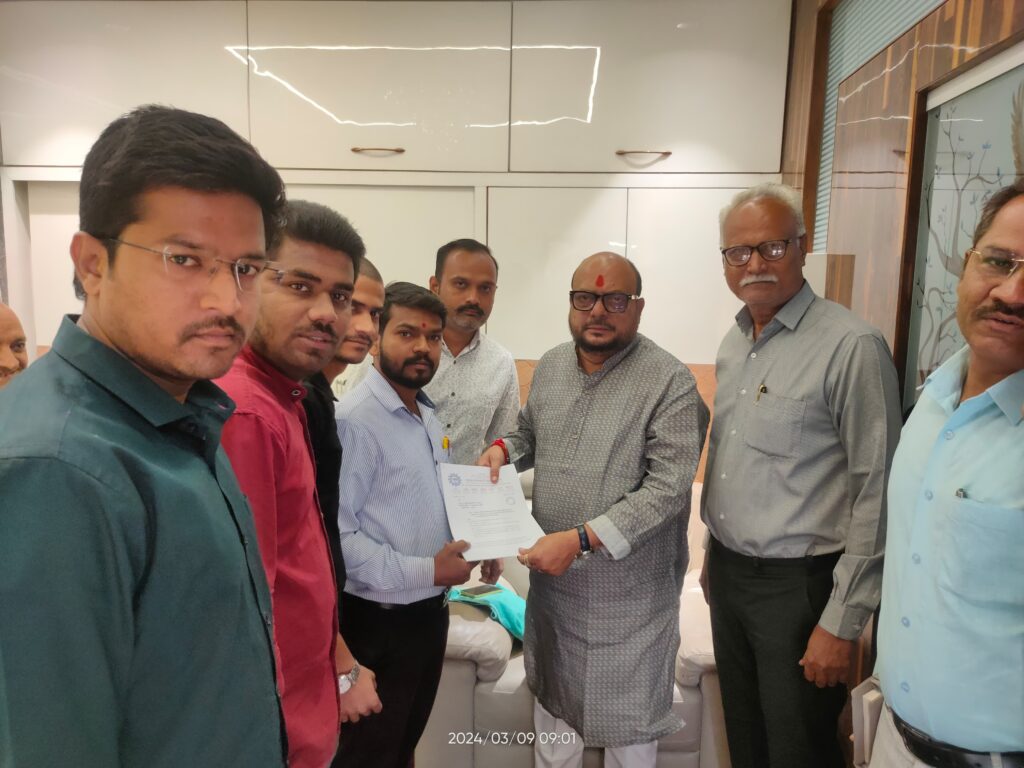
CHB instructors unions play a vital role in advancing the cause of contractual recruitment of instructors in Maharashtra’s ITIs by advocating for instructor interests, engaging in negotiations and policy advocacy, mobilizing support, providing legal assistance, fostering collaboration, and ensuring accountability. Their concerted efforts contribute to promoting fairness, equity, and professionalism in the vocational education sector.
- Representation of Instructor Interests: CHB instructors unions serve as the collective voice of instructors, representing their interests, concerns, and demands to relevant authorities, including government agencies, educational institutions, and policymakers. They articulate the need for contractual recruitment to ensure job security, better benefits, and improved working conditions for instructors.
- Negotiation and Bargaining: Unions engage in negotiations and bargaining with government authorities, particularly the Directorate of Vocational Education and Training (DVET) and other relevant departments, to press for contractual recruitment of CHB instructors. They leverage collective bargaining power to advocate for favorable employment terms and policy changes that address the needs of instructors.
The future of clock hour basis instructors in Maharashtra’s ITIs (Industrial Training Institutes) is subject to various factors, including demands from instructors, government policies, and changes in the education sector.
Q: What is the current demand of Maharashtra’s ITI CHB Instructors?
A: The current demand of ITI CHB instructors in Maharashtra revolves around contractual recruitment. They are advocating for stable employment through contractual arrangements, along with access to benefits like healthcare and retirement plans.
Q: Why are Maharashtra’s ITI CHB Instructors seeking Contractual Recruitment?
ITI instructors are seeking contractual recruitment to ensure job security and access to benefits. Many instructors currently work on a clock hour basis (CHB), which lacks stability and benefits compared to contractual employment.
Q: What benefits do CHB Instructors expect from contractual recruitment?
A: Instructors expect several benefits from contractual recruitment, including stability in employment, access to healthcare coverage, retirement plans, and paid leave. These benefits are crucial for ensuring their overall well-being and financial security.
Q: How does Contractual Recruitment benefit Maharashtra’s ITIs?
A: Contractual recruitment benefits Maharashtra’s ITIs by providing stability to the workforce, which in turn enhances the quality of vocational education. Stable employment encourages experienced instructors to remain in their roles, leading to improved continuity and consistency in training programs.
Q: How can Contractual Recruitment contribute to the Overall Development of Vocational Education in Maharashtra?
A: Contractual recruitment can contribute to the overall development of vocational education in Maharashtra by attracting and retaining talented instructors. Stable employment and access to benefits motivate instructors to deliver quality training, thereby enhancing the skill development of students and the competitiveness of the workforce.

